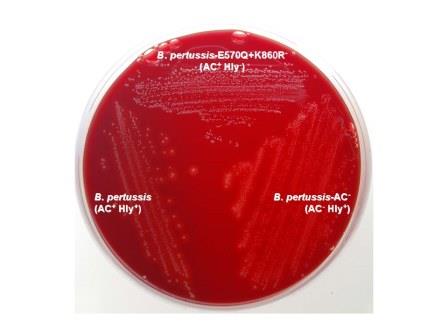Laboratory of Molecular Biology of Bacterial Pathogens
Head of the Laboratory:
prof. Ing. Peter Sebo, CSc.
Cell Phone: +420 774 798 121 (business)
Phone: +420 24106 2762 (secretary and voice mail)
Fax: +420 241 062 152
Email: sebo@biomed.cas.cz
| prof. Ing. Peter Šebo, CSc. | Head of the Laboratory | |
| Ing. Radim Osička, Ph.D. | Scientist | |
| Mgr. Ladislav Bumba, Ph.D. | Scientist | |
| RNDr. Jiří Mašín, Ph.D. | Scientist | |
| RNDr. Jana Holubová, Ph.D. | Associated scientist | |
| Ing. Adriana Osičková Ph.D. | Associated scientist | |
| RNDr. Irena Linhartová, CSc. | Associated scientist | |
| Ing. Ondřej Staněk, Ph.D. | Associated scientist | |
| Mgr. Eva Slivenecká, Ph.D. | Associated scientist | |
| Mgr. David Jurnečka, Ph.D. | Postdoctoral fellow | |
| Mgr. Jawid Nazir Ahmad, Ph.D. | Postdoctoral fellow | |
| Dr. Maryam Goldshani, Ph.D. | Postdoctoral fellow | |
| Mgr. Ludmila Brázdilová | PhD student | |
| Mgr. Nela Klímová | PhD student | |
| Waheed Ur Rahman, MSc. | PhD student | |
| Carlos Angel Espinosa Vinals, MSc. | PhD student | |
| Humaira Khaliq | Research assistant | |
| MUDr. Šárka Knoblochová | Research assistant | |
| Anna Lepesheva | Research assistant | |
| Ing. Kateřina Filipi | Research assistant | |
| Hana Lukeová | Technician | |
| Soňa Kozubová | Technician | |
| Iva Maršíková | Technician | |
| Attila Juhász | Technician | |
| Michaela Grobarčíková | Technician | |
| Karyna Zhuk | Technician | |
| Ilona Krupičková | Sekretářka |
We study tricks and tools used by pathogenic bacteria to suppress our immune defense. In particular, we study the whooping cough agent Bordetella pertussis that causes the respiratory illness called pertussis. This infectious disease can be fatal to smallest non-vaccinated infants and is currently on the rise in the most developed and wealthiest countries (where vaccine refusal is on the rise and less reactogenic but also less efficacious pertussis vaccines are used).
The major focus of our research is on the structure and mechanisms of action of the adenylate cyclase toxin (ACT). This major virulence factor plays a crucial role in suppression of the sentinel functions of host phagocytes in the course of infection. Thereby it enables bacteria to colonize the airway epithelia of the host. We are analyzing the mechanisms underlying toxin penetration into phagocytes and the mechanisms by which its action paralyzes cellular signaling and killing of bacteria. One of our projects aims at development of a next generation of pertussis vaccines. Besides basic research on “how” does the toxin work we are also co-authors of international patents on the use of detoxified forms of ACT in vaccines. We contributed to development of an immunological technology that is currently under clinical evaluation for immunotherapy of cervical tumors in ladies infected by human papillomavirus.
Our credo is “knowledge is useful”. Through highest quality basic research we strive for gaining of deepest understanding of “HOW IT WORKS”. At the same time we search for ways how to use the acquired knowledge for the benefit of the taxpayer that funds our scientific work.




